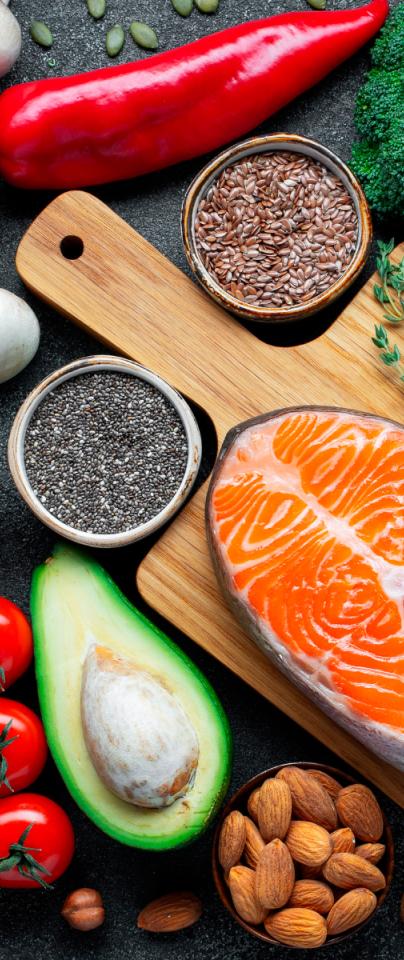Barney Bee is buzzing for Norwich Science Festival
Last year we brought you the award winning Pink Pigeon trail. This year we’re going even bigger, with an exploration of pollinators, food & health.
Last year we brought you the award winning Pink Pigeon trail. This year we’re going even bigger, with an exploration of pollinators, food and health.
Norwich Science Festival is a wonderful showcase of science from Norwich and beyond, and this year we’ll see huge names of the likes of Dr Jane Goodall OBE setting the stage for a week of fun, learning and excellent public engagement.
This year, EI will be taking to the stage once again with 11 talks and poems covering a fascinating range of science topics, from Salmonella and guts through to sequencing algae in the Antarctic, covering the whole tree of life in the process. We will also be visiting the Forum over three days, bringing an innovative Bee Trail, LEGO sequencer, robots and more.
At Castle Mall, too, we’ll be taking our science to the shoppers of Norwich, setting up a stall at Kastle Kids where, along with our friends and colleagues from across the Norwich Research Park, we’ll be running a public dialogue event where you will get the chance to shape the research that we do.
If you check into the Science Lates evening on Friday 19 October, you’ll also be able to see science communication & outreach manager Pete’s poem, ‘Super Ape’, which will take you on a breathtaking journey from the big bang to the eventual extinction of humanity.


At Castle Mall, too, we’ll be taking our science to the shoppers of Norwich, where, along with our friends and colleagues from across the Norwich Research Park, we’ll be running a public dialogue event where you will get the chance to shape the research that we do.

Last year we brought you the Pink Pigeon Trail, a fascinating journey of discovery through conservation genomics and the plight of the Mauritian pink pigeon. It was so well received that we won a UEA engagement award as a result!
This year, we will combine our innovative LEGO DNA sequencer with a trail based activity that will explore the threats faced by pollinators, such as bees, and how we can track what plants they pollinate for the good of sustaining bee populations and to make agriculture more efficient.
The trail, headed up by our new mascot Barney Bee, will take visitors on a clue-hunting tour of discovery, where they must find the bees and the plants that they pollinate. Attached to each bee will be a pollen grain with a unique DNA sequence, which guests will be invited to build and then put through our LEGO DNA sequencer to discover what plant each bee has been visiting.
At the end of a successful trail, participants will receive a bag of wildflower seeds - and will be encouraged to share pictures and videos as they plant these in their gardens or other areas set aside for cultivating more wildflower meadows.
You can read all about the fascinating science behind the activity here, and you can also come along to Wilfried Haerty’s talk in the Forum on Wednesday 23 October to hear about ‘Silent orchards: the importance of pollinators for your five a day.’
The bee trail will be in the Forum on 22 and 23 October, and in the Kastle Kids section of Castle Mall on 24 October.


Attached to each bee will be a pollen grain with a unique DNA sequence, which guests will be invited to build and then put through our LEGO DNA sequencer to discover what plant each bee has been visiting.

We’re putting on an opportunity for you to meet with our scientists and work on an exploratory dialogue in which we create a vision of the future of food and health research in Norwich together. There’ll be a chance to hear from some of our scientists, and also get hands-on with our science festival activities.
As a result of the dialogue, we will share a piece of artwork unique to the conversations that we have with each and every participant, and will invite people to keep the conversation going with future events across the Norwich Research Park.
This will be a fabulous chance to have your say in how we use taxpayer money to do research, and you can get tickets here for the event which takes place on the evening of Thursday 24 October in Castle Mall, Norwich.
On the subject of food, you can hear our Head of Business Development & Impact, Liliya Serazetdinova, fill us in on how data-driven technologies are transforming the food chain, in her talk, ‘From farm to fork: how big data puts food on your table’. You can see her in the Forum on Saturday 19 October.


We’re putting on an opportunity for you to meet with our scientists and work on an exploratory dialogue in which we create a vision of the future of food and health research in Norwich together. This will be a fabulous chance to have your say in how we use taxpayer money to do research, and you can get tickets here for the event.

No science festival would be complete without robots, and we’ve got a few here at EI.
The Ji Zhou Group will be at the Forum on Friday 25 October, where they’ll be showing off 'Sheila' and friends: robots and machine learning tools that are ushering in the future of agriculture and plant breeding.
You can also see Danny Reynolds, chief engineer of 'Sheila', give a talk on his work in building these technologies - from roving robots to drones flying high above fields - and how we are applying them in the UK, China and beyond.
So, we’ve got robots and we can also tick off cute mammals, some less cuddly than others.
Paddington Bear came from deepest, darkest Peru, and we’ve been looking for his cousins over in Colombia, where we are helping to sequence the genome of the Andean bear and get an idea of the threats faced by the only extant species of bear to live in South America.
We can’t tell you if Andean bears like marmalade, but we can help you explore the genetic history of these bears, and how we can use DNA to understand how we might better protect them. Adam Ciezarek will be giving his talk, ‘Saving the spectacled bear of deepest, darkest Colombia’, on Monday 21st October.


Paddington Bear came from deepest, darkest Peru, and we’ve been looking for his cousins over in Colombia, where we are helping to sequence the genome of the Andean bear and get an idea of the threats faced by the only extant species of bear to live in South America.

Mammals are marvellously interesting, us being one, and Will Nash (who last year told us how Koalas are able to survive on toxic eucalyptus leaves) will be posing the question ‘How well do you know your family tree?’ in his talk on Monday 21st October. Ever wondered how a whale can dive so deeply under the ocean, or how a beaver is so efficient at gnawing wood?
You’ll find out about those things and more as Will introduces his work on a project to sequence hundreds of mammal species with all sorts of interesting adaptations, celebrating their great diversity while investigating what makes us unique among them, with interesting implications for human health.


Mammals are marvellously interesting, us being one, and Will Nash (who last year told us how Koalas are able to survive on toxic eucalyptus leaves) will be posing the question ‘How well do you know your family tree?’.

We’re covering the tree of life with our talks at this year’s Norwich Science Festival, and one major branch is made up of bacteria.
Have you ever wondered what millions of gut bacteria do for us? Did you ever have a bad stomach after eating out? What happens to all those microbes in the gut when this happens? How can we keep the gut healthy? Come along for this showcase on the biology of the gut!
Clémence Frioux, Martina Poletti and Marton Olbei will be taking you on a journey through ‘bacteria in the gut: the good, the bad, and the protective’, on Wednesday 23 October.
Clémence will explore the role of the trillions of bacteria that live in our guts, how they prevent infections and how they can also suffer from the invasion of harmful bacteria just like we do. Martina will then look at how bugs in the gut can keep us healthy, focusing on her work on bifidobacteria, while Marton will then talk about his work on dealing with the global pathogen threat of Salmonella, and how we can use computer models to tackle it.


Have you ever wondered what millions of gut bacteria do for us? Did you ever have a bad stomach after eating out? What happens to all those microbes in the gut when this happens? How can we keep the gut healthy? Come along for this showcase on the biology of the gut!

The living things we see are only a small proportion of life on Earth. Our environment is alive with unimaginably diverse microscopic creatures, the protists. Protists are not bacteria, they are complex single celled organisms that may hold the key to understanding the origin of life on Earth.
Neil Hall, Director of EI, will be taking the audience on a journey through nature’s dark matter, where you’re guaranteed to learn about the organisms that prop up our ocean ecosystems, produce perhaps two thirds of all oxygen on Earth, and also lead to some deadly diseases - the world’s deadliest, malaria, among them.
Emma Langan will also be taking the audience with her on her journey to Antarctica, where she has been exploring the life underpinning our global ecosystems: the tiny, green lungs of the earth - phytoplankton such as coccolithophores. You can see her talk, ‘Emma’s Antarctic Adventure: algae and climate change on the high seas’, on Tuesday 22 October.


Emma Langan will also be taking the audience with her on her journey to Antarctica, where she has been exploring the life underpinning our global ecosystems: the tiny, green lungs of the earth - phytoplankton such as coccolithophores.

Over your lifetime you have expanded from a single cell into a coordinated assembly of over 30,000,000,000,000 cells – 100 times the number of stars in the Milky Way. Your cells – like tiles in a mosaic – are diverse in size, shape, function and identity, but work collectively to sustain and maintain life.
In his talk on Friday 25 October, Iain Macaulay will explore how genomics technologies are allowing us to explore this extraordinary mosaic of life in unprecedented detail.


Over your lifetime you have expanded from a single cell into a coordinated assembly of over 30,000,000,000,000 cells – 100 times the number of stars in the Milky Way.
